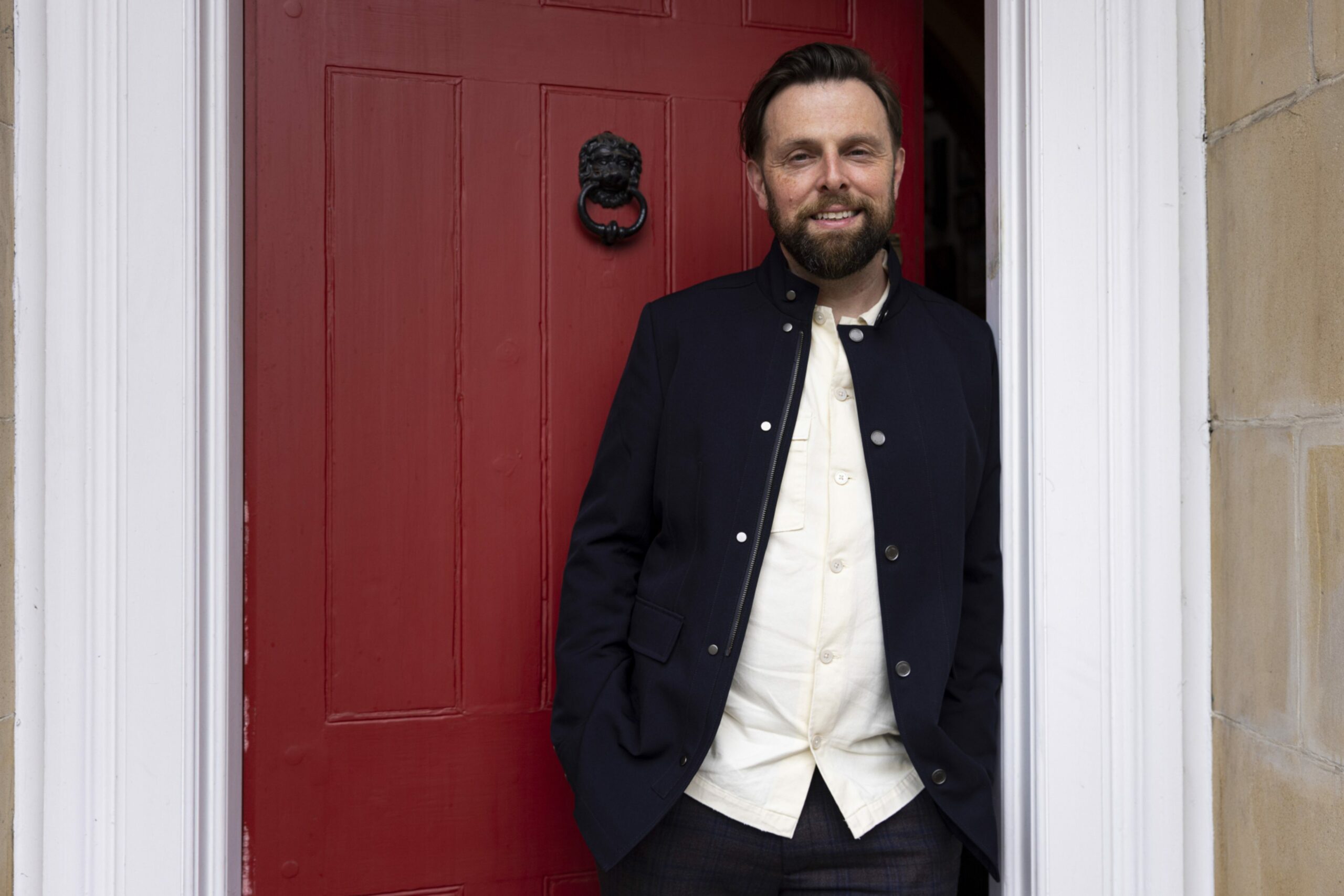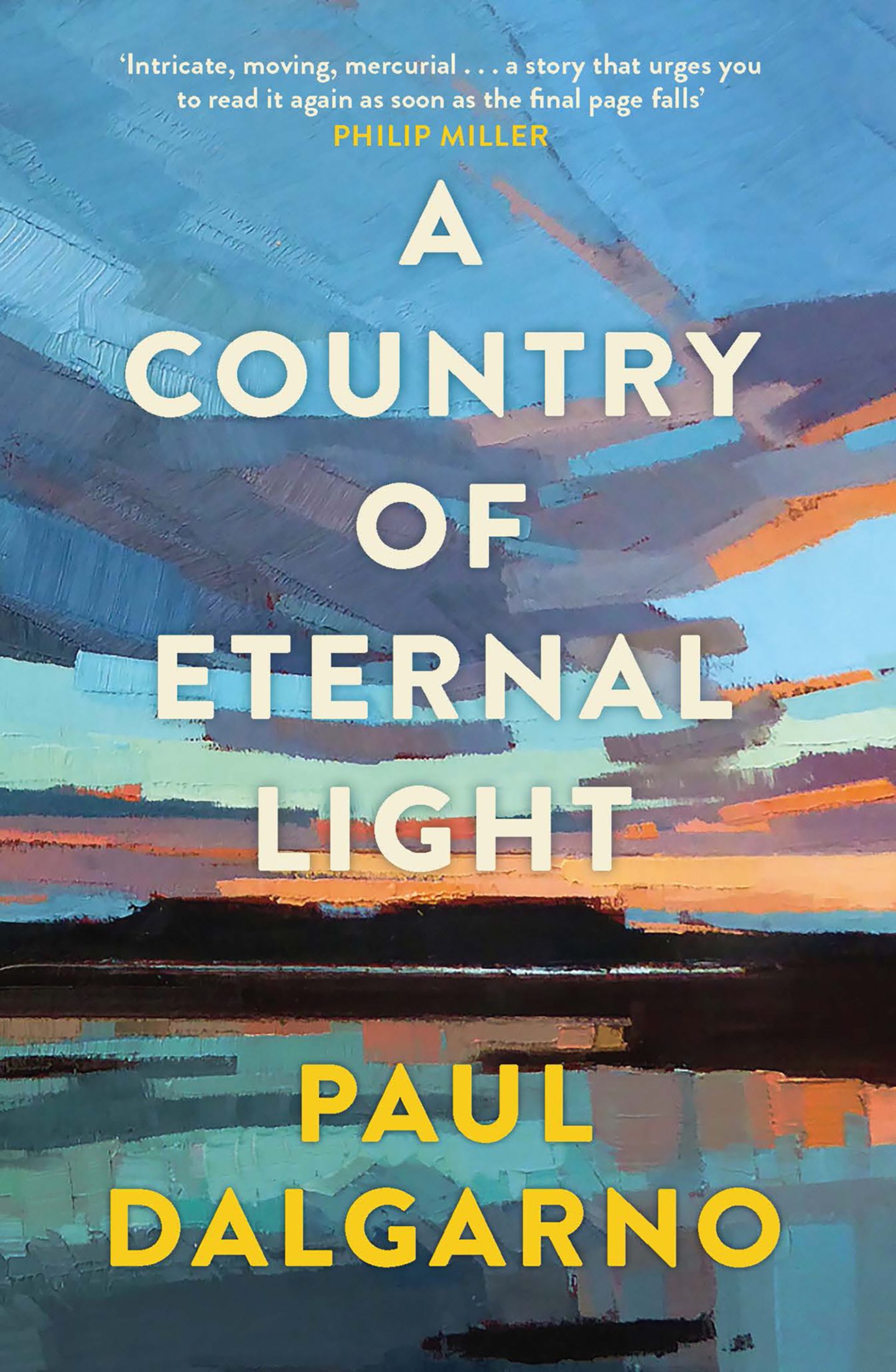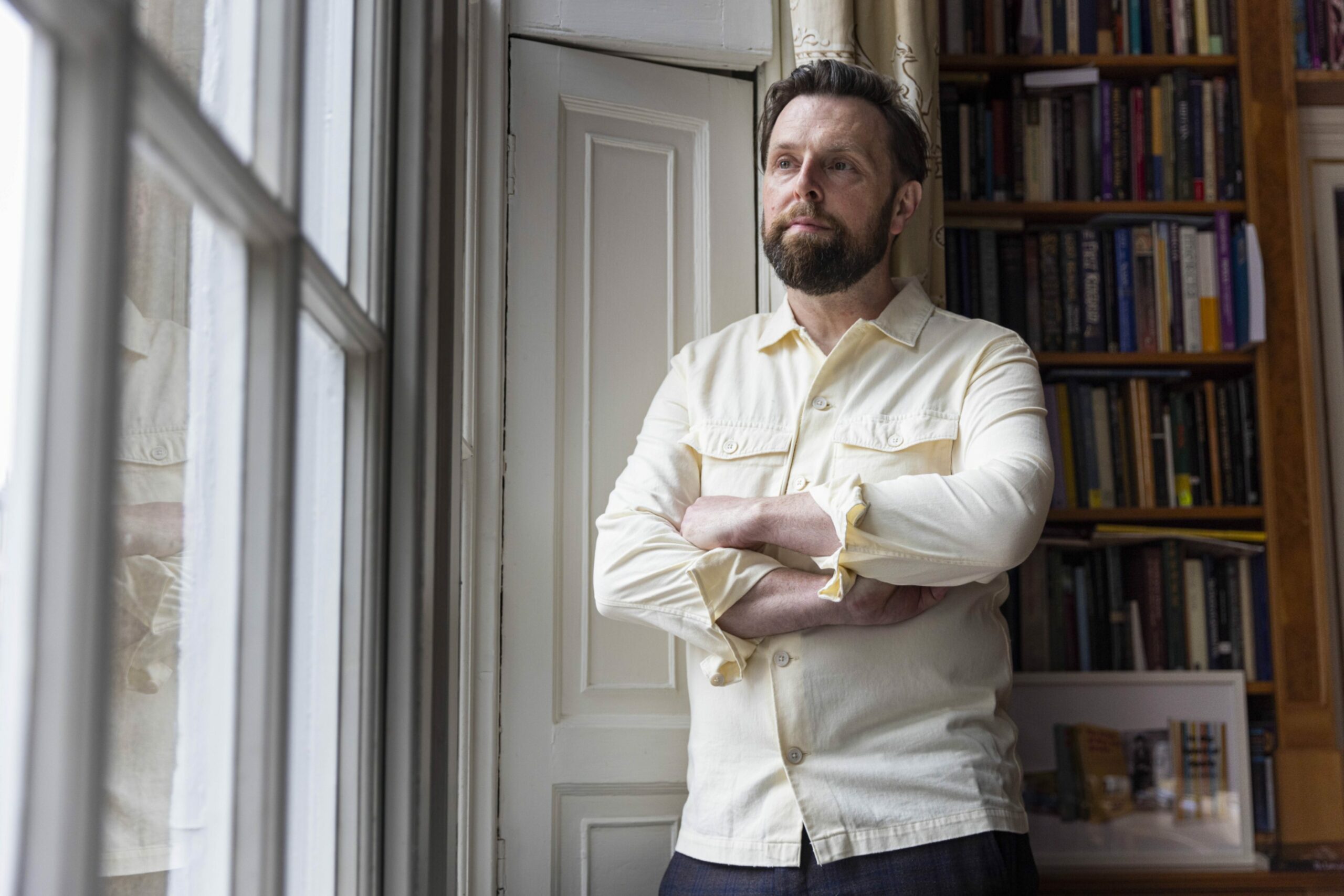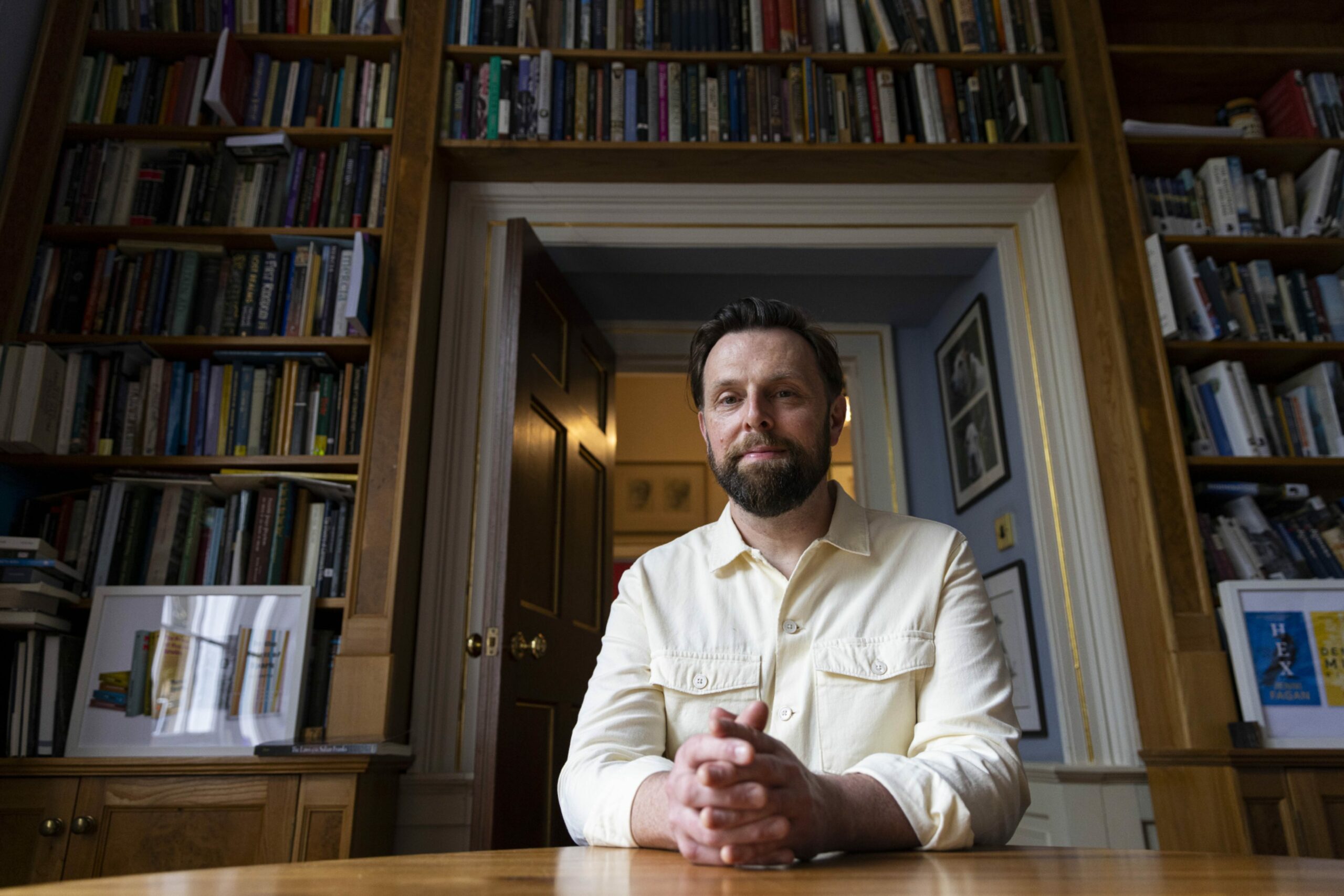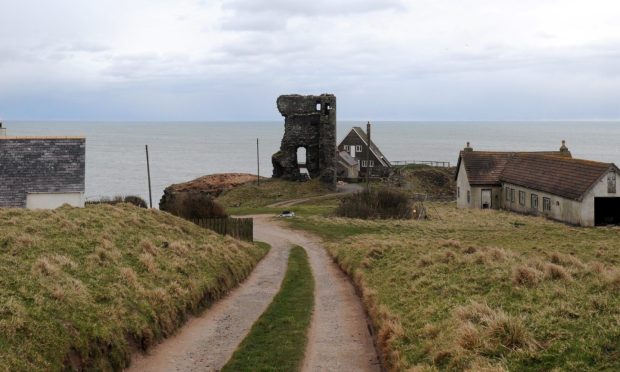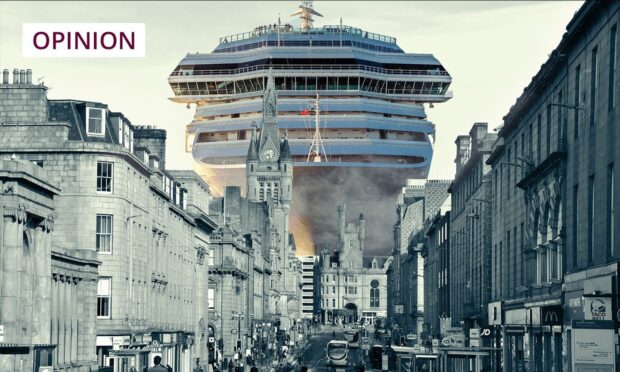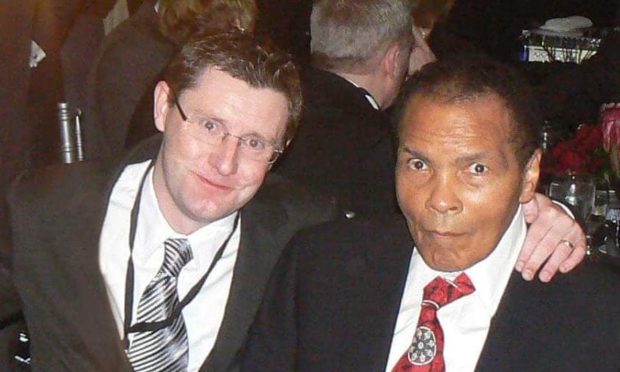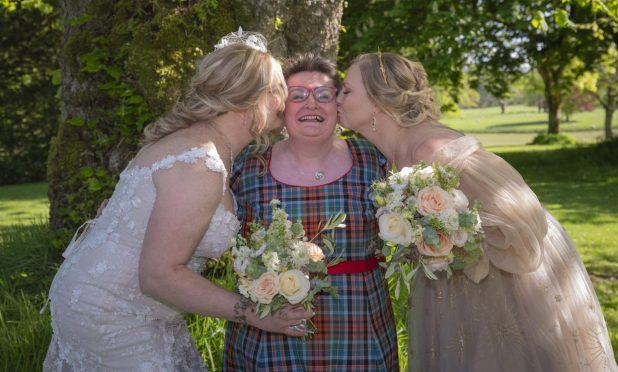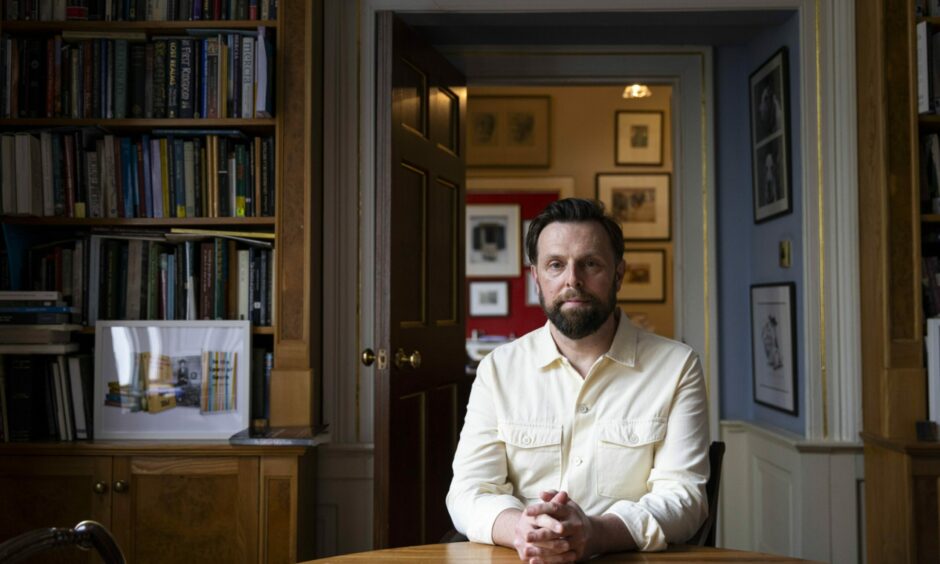
Paul Dalgarno was always expected to conform to a working-class normality when he was growing up in Heathryfold in Aberdeen.
It was drummed home to the youngster that there were certain books he couldn’t or shouldn’t read and arcane ideas he probably shouldn’t engage with, along with the message: concentrate on learning a trade and forget about going to university.
In accordance with that template, Paul left school at 14 and, in his own words, “went haywire” for a few years, became besotted with Bob Dylan, attempted to emulate the American maestro’s famous whine, and was on a potential road to nowhere when he signed up for a night class in English literature at his local college in the Granite City.
Imagination was sparked
It changed his life. Suddenly, fuelled by the enthusiasm and wisdom of an erudite master at the end of his career, who lived and breathed books, the teenager found himself in love with reading, writing and bringing his myriad ideas to fruition.
His imagination had been sparked and the torch has burned brightly ever since on his peripatetic route from Aberdeen to Australia, via Italy. This week, he is going back to his roots, promoting his remarkable new book A Country of Eternal Light, which covers everything from Piper Alpha to Thatcher’s Britain and Mary Queen of Scots to raging bushfires, all depicted in the sort of compelling style which has garnered rave reviews.
Mind you, it starts with one of those magnetic hooks – “Margaret Bryce has been having a hard time since dying in 2014” – which invites the reader to to climb aboard the vehicle and enjoy the roller-coaster ride. But how on earth did a down-to-earth Aberdeen loon end up being courted by the literary set on the other side of the world?
A happy early childhood
He told me: “I grew up in Heathryfold and then Hazlehead and had a happy early childhood, with lots of friends and few insecurities. In my teens, I went haywire, getting into all sorts of trouble and driving my parents and teachers to distraction.
“I became a painter and decorator’s apprentice and then a service engineer, fixing washing machines and other home appliances. I didn’t read or write much, but returned to college to do an English Higher night class, to see what it felt like, at 17.
“My teacher, Donald Cunningham, was in his last year of working and I couldn’t quite believe there were people like him. He inspired me hugely and, a year or so later, I started an English degree at Aberdeen University.
“Following that, I taught English language for a year in Italy – which is where I met my wife, who is from Australia. We lived together for about seven years in Glasgow, where I worked as a journalist [with The Herald]. When we had our first child, my wife said that she wanted to be around her family in Melbourne, and….off we went.”
‘I wanted to write about complicated grief’
Paul has created something completely unique in his new work. If it’s difficult to describe, imagine an artist who has thrown 100 different pots of paint at a blank canvas and, far from creating a mess, has conjured up a maelstrom of magic.
It was conceived during Covid and he can remember thinking that he poured his heart and soul into the venture, just in case it was the last thing he ever wrote. It’s all here; grief, love, family, where we all fit in – or don’t – and what we leave behind us. But if that sounds abstruse, it’s all done with a remarkable lightness and self-assurance.
He said: “I knew I wanted to write about complicated grief – a condition, when you haven’t seen a loved one’s corpse or been at their funeral, that can leave you feeling they’re dead but also, illogically, and sometimes sweetly, still alive.
Grief connects with laughter
“I’d been struggling to do that for years, until the penny dropped in 2021 that I should write from the perspective of someone – my narrator, Margaret Bryce – who is both dead and alive. But I didn’t want to write a heavy or depressing book, which meant I ended up coming at grief mainly through its connected opposites: love and laughter.
“There’s plenty of humour and levity throughout. Fundamentally, it’s a book about the life we’re given and the everyday, often overlooked, miracle of that. It’s about the seemingly small moments we spend with our nearest and dearest.
“Because the story moves around chronologically, I also knew I wanted to look at what was happening in the world of the characters during those different periods. What started with the Piper Alpha disaster in 1988, a year and tragedy that’s central to the novel, led to writing about all sorts of other historical events that had, and continue to have, a bearing on people’s lives.”
It feels like a lifetime ago
It’s long ago and far away since he started playing the guitar at 13 and performed The Times They Are A-Changin’ for his friends with a curly wig, Dylanesque whine and harmonica holder – even if he admits: “I don’t remember anyone being very impressed.”
Yet there’s one story which sticks in his mind. As he recalled: “Once, when talking to my paternal grandma about the text I was reading for my studies – Paradise Lost – she said casually that she had enjoyed it, but didn’t really rate the sequel, Paradise Regained, both of which she’d borrowed from the library at some point.
“I was stunned. This was someone who worked in the fish yards gutting fish, who was the first woman to successfully give birth to triplets at Aberdeen’s Foresterhill hospital and then had to raise them, and my infant father, on the smell of an oily dishcloth.”
These were the days when women were expected to stay at home and leave the academic aspirations to men. But not all of them went quietly into meek subjugation.
Paul now lives in Oz with his family and it’s more than 20 years since he was a regular in Aberdeen, which means his appearance at Waterstones next Thursday, will offer a rare opportunity to revisit old haunts. But he knows about the problems which have beset a region which used to be rolling in wealth from the energy revolution.
As he told me: “The last time I lived in Aberdeen consistently was in 2002, which feels like a lifetime ago. I wish I was more surprised that there wasn’t better legacy planning throughout the sustained oil and gas boom, but I’m not.
‘We don’t worry about the future’
“Of course, it would have been nice if some provision had been set up, like the Oil Fund in Norway, to see a percentage of the North Sea profits ring-fenced and invested for the good of Aberdeen and its surrounds, but that was never going to be a priority for the UK government or multinational oil and gas companies.
“I don’t know how hard that would or could have been pushed by Aberdeen City Council. Alas, when things seem to be going well, we don’t worry too much about the future, which is one of the loveliest, and stupidest, parts of being human.”
Scotland, of course, is far from being a country of eternal light. And there is something about the Caledonian psyche which grapples with such issues as: Who are we?
But, for Paul, it’s also a reminder of the progress and advances made from the old days when so many working-class dreams were thwarted.
He said: “I would try to tell my grandparents the truth, that there were loads of not-so-smart people at university, a surprising amount really, and so many who were way less intelligent and engaged than them.
“But I don’t know that they were ever fully convinced by that. This book, then, is something of a tribute to them, to anyone who shines as brightly as they did, despite the odds, without fully realising it.”
He has truly done them proud.
Details of Paul’s event in Aberdeen are at: www.waterstones.com/events/in-conversation-with-paul-dalgarno/aberdeen
FIVE QS FOR PAUL DALGARNO
- What book are you reading? Sunset Song by Lewis Grassic Gibbon.
- Who’s your hero/heroine? My late paternal grandma.
- Do you speak any foreign languages? Spanish, and some rusty Italian.
- What’s your favourite music or band? Mogwai.
- What’s your most treasured possession? My road bike (it’s a beauty).
